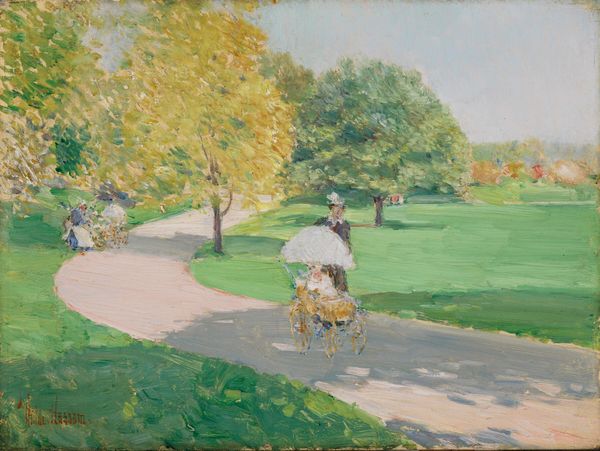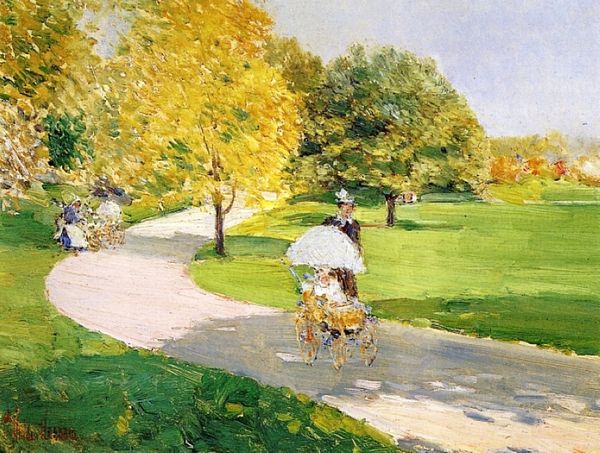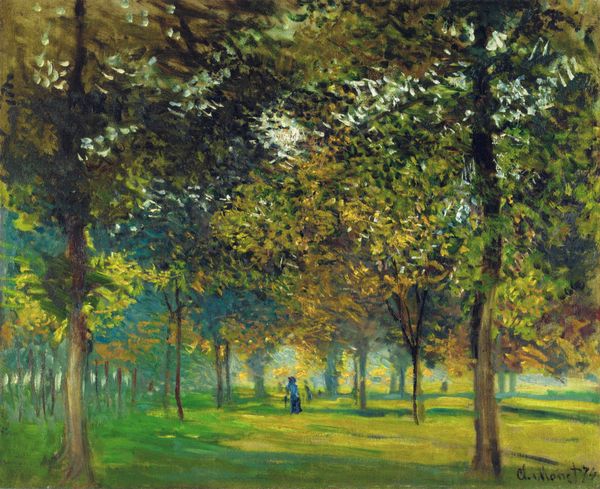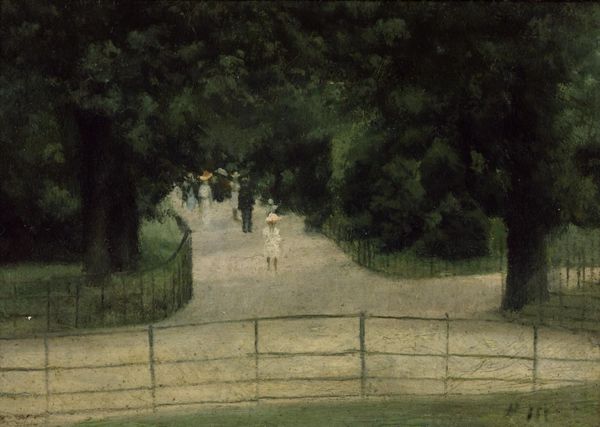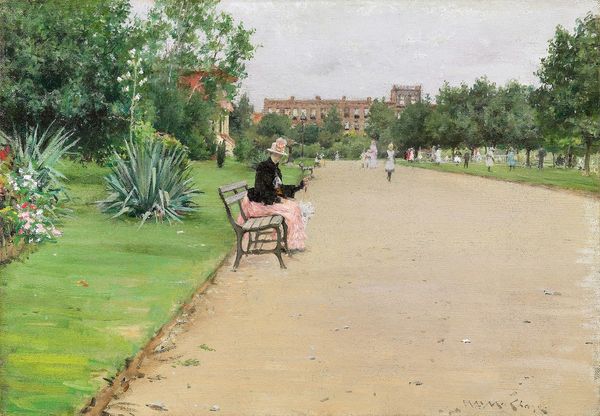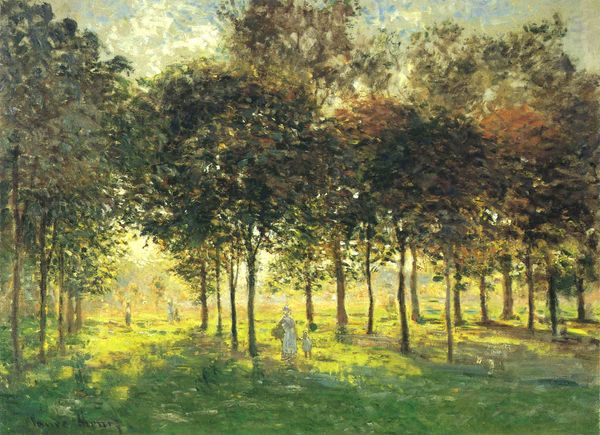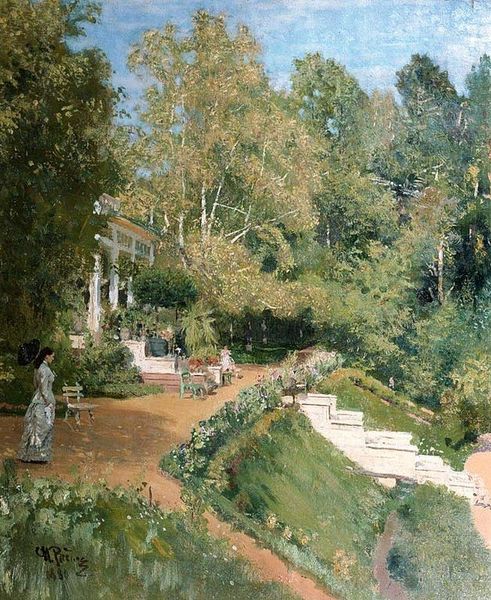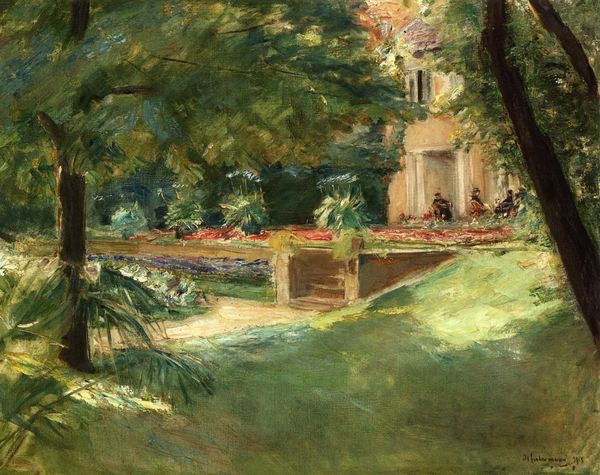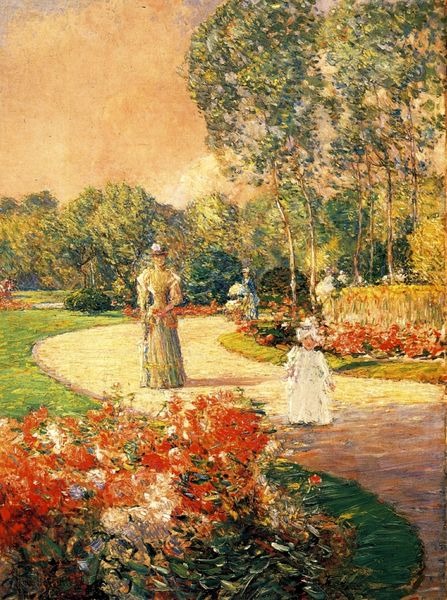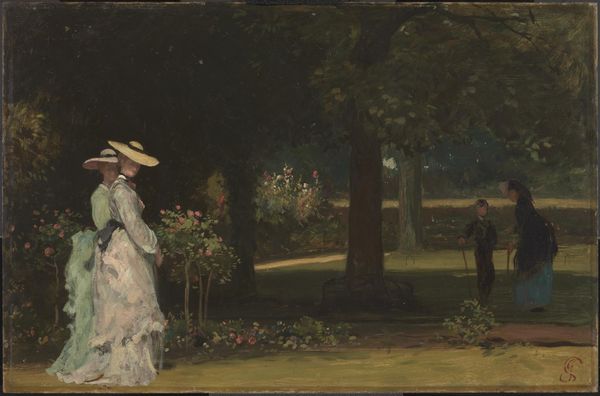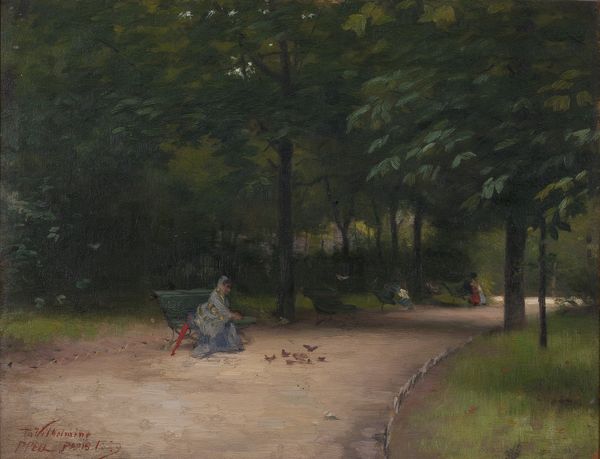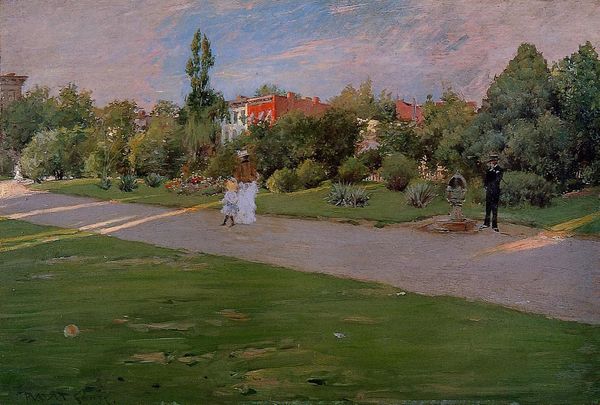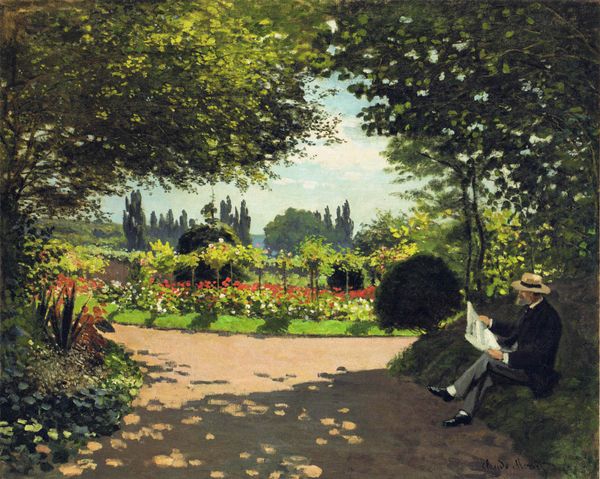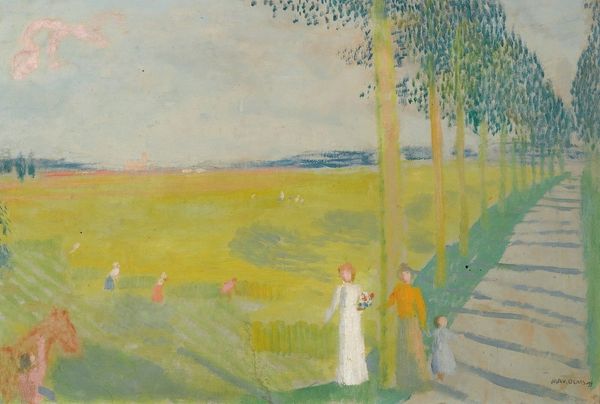
painting, plein-air, oil-paint
#
portrait
#
painting
#
impressionism
#
plein-air
#
oil-paint
#
landscape
#
figuration
#
cityscape
Copyright: Public Domain: Artvee
Editor: Here we have Childe Hassam’s "Parc Monceaux, Paris," painted around 1888-1889. It's an oil painting. I’m struck by how the path draws the eye right into the middle of the canvas. What aspects of its structure stand out to you? Curator: The most arresting element is indeed that serpentine path, a crucial structural device. Observe how its curves create dynamic movement, a deliberate contrast with the static verticality of the trees. The composition becomes a play of opposing forces. How does that linearity affect the viewer's experience? Editor: I suppose it guides our eye, preventing it from simply wandering around the canvas, imposing a sense of order on what could otherwise be a rather chaotic scene of trees and greenery. It feels very intentional. Curator: Precisely. And consider the colour palette: predominantly greens and soft greys, modulating subtly. What is the effect of such colour choices on the perceived mood of the scene? Editor: I think it gives the scene a very soft, gentle and dream-like quality, a nostalgic recollection of a Parisian afternoon. Curator: And does that nostalgic, dream-like atmosphere alter how you see the figure? Consider her positioning within the landscape and her somewhat blurred definition. Editor: She appears like an extension of the pathway itself, an integral piece in the greater visual experience Hassam creates with line and color, which has perhaps taught me a great deal about this piece. Curator: Indeed. Hassam masterfully uses form and colour to orchestrate a complex visual experience far exceeding mere representational landscape. We understand better Hassam’s artistic intent.
Comments
No comments
Be the first to comment and join the conversation on the ultimate creative platform.
